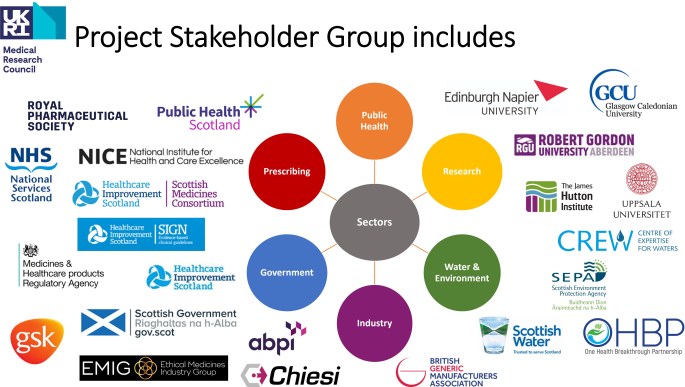NHS Highland, the University of the Highlands and Islands – Environmental Research Institute (ERI), and the University of Nottingham are 6 months through the UKRI Medical Research Council grant to develop an eco-directed formulary that incorporates environmental data on medicines into the prescribing process.
This project proposes that if pharmaceuticals are of comparable medical efficacy, safety, and effectiveness, then the environmental impact around pollution in the aquatic environment (e.g., drug ecotoxicity, predominance towards AMR) should be considered during the formulary process to better inform prescribers, enabling them to make more sustainable prescribing choices.
Activity undertaken so far includes:
- Establishing our stakeholder group – with members including Scottish Chief Pharmaceutical Officer, Chief Medical Officer, National Clinical Director, as well as representatives from prescribing, public health, pharmaceutical industries, generics manufacturing, medicines regulation, water sector, environment regulation (see photo). The group provides valuable insight and feed-in on the project activity.
- Cross-sector stakeholder consensus workshops to identify pharmaceuticals and review environmental criteria for the formulary, considering pre-workshop questionnaires and pre-selected lists of criteria. Carried out with representatives from the Scottish Government, Scottish Water, SEPA, NHS Highland, Public Health Scotland, Scottish Medicines Consortium, pharmaceutical industries, Robert Gordon University, Glasgow Caledonian University and the James Hutton Institute.
- Co-design of the Scotland-wide Bayesian Network model with researchers at the James Hutton Institute to generate both a clinical and environmental risk score for the selected pharmaceuticals, using the environmental and clinical criteria agreed with stakeholders. This modelling work uses the georeferenced environmental and prescribing data from SEPA’s Pharmaceuticals in the Water Environment tool, as well as collated physicochemical data and ecotoxicity data (as included in the NORMAN database and elsewhere).
- Public focus groups, hosted in-person in Inverness to assess the awareness and perceived importance of pharmaceutical pollution in the environment, and sustainable prescribing methods.
- Promoting the project at several key events including: World Water Day (Edinburgh), UK Environmental Observations Forum conference (online), Ethical Medicines Industry Group Scotland meeting (Edinburgh) and the Sustainable Prescribing roundtable hosted by the Royal Pharmaceutical Society and the Royal College of General Practitioners (and more!).

The project demonstrates a truly trans-disciplinary approach through integration of public health, environmental science, and social science methods and data. Project partners include the James Hutton Institute, University of Uppsala, Scottish Water, and the Scottish Environment Protection Agency. The project will maximise on established networks across the healthcare, prescribing, environment, and water sectors, including the One Health Breakthrough Partnership – a globally unique, cross-sector group committed to reducing the environmental impact of healthcare practices.
This research is a first step towards improvement of medicine prescribing in Scotland to reduce pollution, that seeks to generate new knowledge and awareness of the environmental impact of medicines.
More information on the project can be found online, or by contacting Lydia Niemi (lydia.niemi@uhi.ac.uk).

